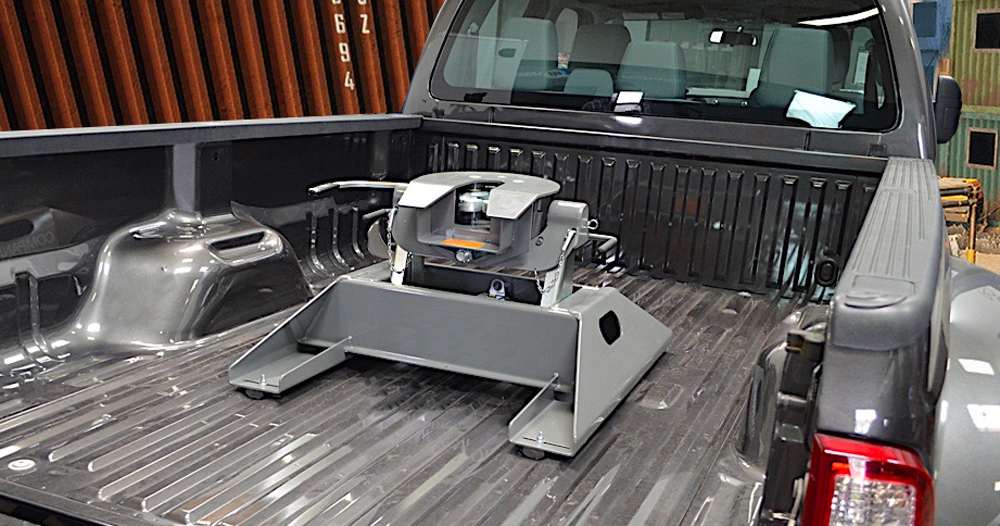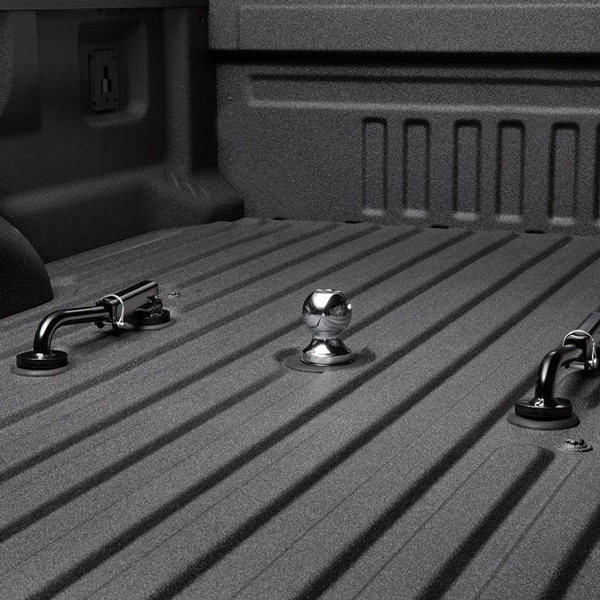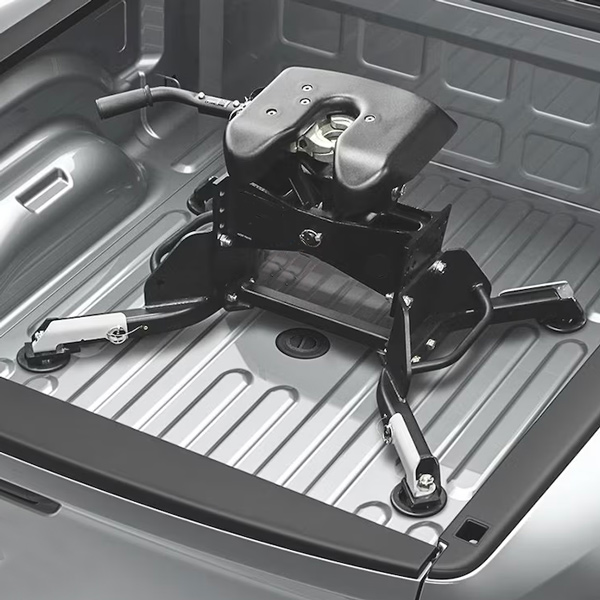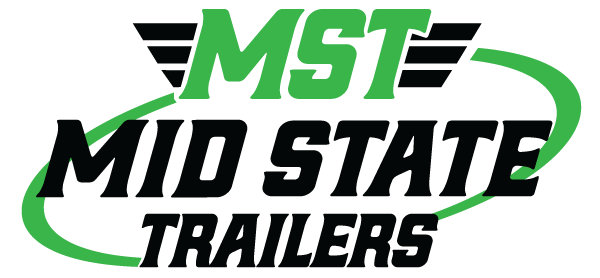Gooseneck vs 5th Wheel Hitches

If you’re in the market for a trailer, you’re about to embark on a journey that can open up a world of possibilities in terms of motorway logistics. What you may already be aware of is how much noise there is out there; most companies would rather upsell you on an ill-fitting trailer, rather than find one that actually suits your needs. Here at Mid State Trailers, we do things a little differently.
Whether you’re looking to haul a 30ft gooseneck trailer or some other kind of trailer entirely, one of the crucial decisions you’ll need to make is the type of hitch to use. In this guide, we’ll explore the differences between gooseneck and 5th wheel hitches to help you decide which one is right for your specific use case.
The Basics: What are Gooseneck and 5th Wheel Hitches?
Let’s start with the fundamentals. Both gooseneck and 5th wheel hitches are used for towing trailers, but they connect to your towing vehicle differently, and each has its unique advantages and limitations.
Gooseneck Hitches
A gooseneck hitch, as the name suggests, features a hitch ball that is installed in the middle of the bed of the towing vehicle. A vertical post attached to a heavy steel neck that arches from the trailer over the back of the truck to the hitch ball most definitely looks like the neck of a goose, hence the name gooseneck trailer! This type of hitch is commonly used in the towing of longer trailers that can carry heavier loads including horse trailers and various flatbed trailers.
One significant advantage of gooseneck hitches is their stability. The design allows for a tighter turning radius, making it easier to maneuver and park a longer trailer. Gooseneck hitches also distribute weight more evenly between the front and rear axles of the towing vehicle, enhancing stability on the road.
5th Wheel Hitches

5th wheel hitches, on the other hand, are designed for use with RVs and some of the largest trailers. These hitches connect to a large horizontal plate in the bed of the towing vehicle, rather than a ball hitch. The connection is similar to the fifth-wheel coupling on semi-trucks, which is where the name comes from.
5th wheel hitches are known for their superior weight-carrying capacity. This makes them an excellent choice for hauling heavy loads or large RVs. Their design distributes the trailer’s weight more directly over the towing vehicle’s rear axle, which can be an advantage when dealing with substantial cargo.

5th wheel hitches are also easier to couple than ball hitches. Because 5th wheel hitches are designed with a triangular channel that helps guide the attachment point of the trailer into the hitch, you don’t need to be perfectly aligned with the trailer to have the hitch snap into place. (photo) One of the challenges of a gooseneck hitch is that you have to perfectly align the ball with the gooseneck attachment and this does take some time and practice.
Size Matters: Choosing the Right Hitch for Your Trailer
Your choice of hitch largely depends on the type and size of trailer you plan to tow. Here’s a closer look at how gooseneck and 5th wheel hitches match up with different trailer sizes:
Gooseneck Hitches
- 24ft Trailer: A 24ft gooseneck trailer is a versatile option for various applications. Gooseneck hitches work well with these trailers, providing stability and ease of maneuvering. If you’re planning to use a trailer of this size for hauling livestock, equipment, or other cargo, a gooseneck hitch is an excellent choice.
- 30ft Trailer: Larger gooseneck trailers, like the 30ft models, can benefit from the stability offered by gooseneck hitches. The tight turning radius is particularly advantageous when navigating longer trailers. This makes gooseneck hitches a popular choice for those who need to tow sizeable cargo.
5th Wheel Hitches
- 24ft Trailer: While 5th wheel hitches are typically associated with larger trailers, they can still be used with a 24ft trailer if your primary concern is weight distribution. If your cargo is particularly heavy and you require the extra carrying capacity of a 5th wheel hitch, it’s worth considering this option, even with a smaller trailer.
- 30ft Trailer: When it comes to 30ft trailers, 5th wheel hitches become a more viable option due to their capacity. If you’re planning to haul a large RV or a trailer with significant weight, a 5th wheel hitch provides the strength and stability necessary for the job.
Making the Right Choice
Now that you have a better understanding of gooseneck and 5th wheel hitches, how do you decide which one is right for you? Here are a few considerations to help you make an informed choice:
- Trailer Type: Consider the type of trailer you’re planning to tow. If it’s an RV or a heavy load, a 5th wheel hitch may be your best bet. For more versatile and smaller trailers, a gooseneck hitch often suffices.
- Towing Vehicle: Ensure your towing vehicle is compatible with your chosen hitch type. Some vehicles are better suited for one type of hitch over the other, so compatibility is essential. In order for your trailer to be compatible with your vehicle, you may need to install an appropriate hitch adapter.
- Maneuverability: If you’ll be navigating tight spaces or making frequent sharp turns, a gooseneck hitch might be more convenient due to its enhanced maneuverability.
- Weight Capacity: Analyze the weight capacity of the hitch and the trailer to ensure they match your requirements. Safety should always be a top priority.
- Budget: Consider your budget. In general, gooseneck hitches are often more cost-effective, while 5th wheel hitches tend to be pricier.
- Future Plans: Think about your future towing needs. If you foresee upgrading to a larger trailer or frequently hauling heavy loads, it might make sense to invest in a 5th wheel hitch from the start.
Remember that the right choice ultimately depends on your specific needs and preferences. It’s essential to weigh all the factors before making a decision. If you’re still unsure, consult with a professional or experienced trailer owner who can provide guidance based on their own experiences. You can talk to anyone of our trailer professionals
Conclusion
Choosing between a gooseneck and 5th wheel hitch is a significant decision when purchasing a trailer. Each hitch type has its own set of advantages and limitations, and your choice should align with your intended use, vehicle compatibility, and budget.
By considering the type and size of your trailer, your towing vehicle, maneuverability needs, weight capacity, budget, and future plans, you can make an informed decision. Ultimately, the right hitch will not only enhance your towing experience but also ensure safety on the road. So, happy towing, and may your trailer adventures be smooth and enjoyable! If you would like a quote or have any questions about our trailers, give our friendly trailer experts a call at (336) 857-2888.
